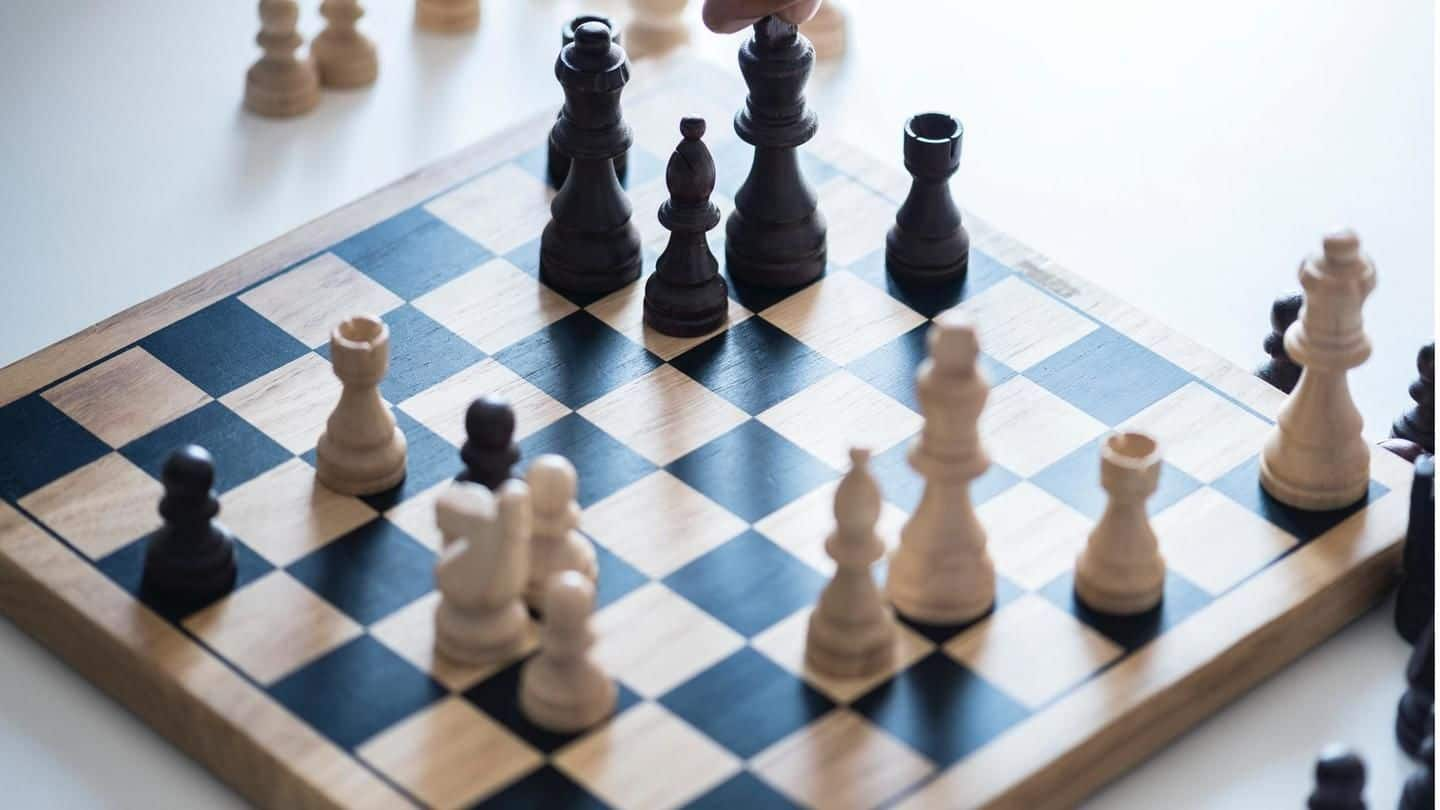
Explainer: The rules of classical chess
What's the story
Chess, as the game we know today, evolved in the 15th century in Europe. The basic rules of chess are known to most. A chessboard consists of 64 squares, with opponents playing with black or white. The objective is to checkmate the opponent's king, that is, to trap the piece in a way that it can't escape. Here we explain other rules of chess.
Directions
How to read the chessboard?
The 64 squares of a chessboard have been named for the convenience of recording the moves. The horizontal squares are named from a to h from the left while the vertical side is named from 1 to 8. Each square gets its name by combining horizontal and vertical names. This is the algebraic notation and is the official system.
Moves
How to read chess moves?
Each chess piece has a name, basically its initial letter. King-K, Queen-Q, Bishop-B, and Knight-N, since K is already used for the king. Pawns are denoted by an absence of a letter. Now, if a knight is moving to the square f3, the move is noted as Nf3. A pawn to square b4 would simply be written as b4.
Notations
Algebraic notations for specific moves
A move which places the opponent's king in check is denoted by a '+' after it. If a move results in checkmate, it is denoted by a '++'. To denote a capture, a move is denoted by the letter of the piece, followed by an x, and then coordinates of the destination square. White's win is denoted by 1-0 and Black's by 0-1.
Terminology
Some important chess terms one should know
Castling- this move allows a player to safe keep their kings. It is done by moving the king two squares along the first rank towards a rook, and then placing the rook on the last square the king has just crossed. Promotion- when a pawn advances to the 8th rank, it can be exchanged for any other piece of the same color.
Winning
How is a chess match won?
Check- the opponent's king is captured without any legal move for it to make. Resignation- either player may resign when he sees himself in a truly hopeless position. Win on time- In games with a time control, a player wins simply if the opponent runs out of time. Forfeit- any gross misconduct, even arriving late or receiving a call can result in forfeiture.